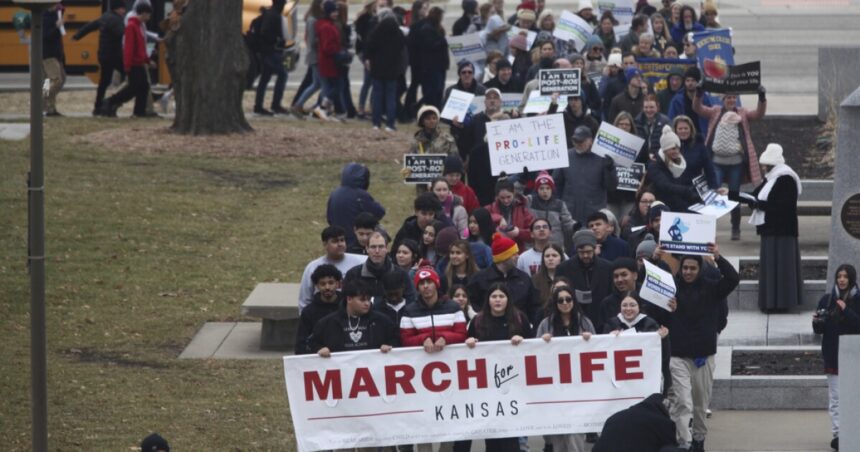The Kansas Supreme Court reaffirmed on Friday that the state constitution protects abortion access, invalidating a ban on a common second-trimester procedure and laws regulating abortion providers more strictly than other health care providers.
Both decisions, made by a 5-1 vote, indicate that other restrictions, even long-standing ones, may not hold up in court. The dissenting justice, known for being conservative, cautioned that Kansas is moving towards a legal environment of unrestricted access to abortion.
Nancy Northup, president and CEO of the Center for Reproductive Rights, celebrated the rulings, saying, “This is an immense victory for the health, safety, and dignity of people in Kansas and the entire Midwestern region, where millions have been cut off from abortion access.”
The rulings come nearly two years after a 2022 statewide vote that strongly supported abortion rights, following the U.S. Supreme Court’s Dobbs decision in June 2022 allowing states to ban abortion entirely. Kansas voters rejected a proposal to amend the state constitution to eliminate the right to abortion.
Related story: New anti-abortion laws go into effect in Kansas despite governor’s veto
Republican Attorney General Kris Kobach argued that the 2022 vote did not impact the legality of the two laws, but Justice Evelyn Wilson disagreed, stating that the people’s vote should be respected.
Notably, neither of the laws challenged had been enforced due to ongoing lawsuits by abortion providers.
The court rulings are expected to have a wide-reaching impact beyond Kansas, as the state has been a destination for patients from neighboring states where abortion access is severely restricted. According to the Guttmacher Institute, an increase in abortions in Kansas has been observed in recent years.
Related story: In wake of Supreme Court ruling, Biden administration tells doctors to provide emergency abortions
Abortion opponents had warned that maintaining the status quo would jeopardize existing restrictions enacted under previous Republican administrations. Kansas has seen a wave of anti-abortion measures in recent years.
Justice K.J. Wall did not participate in the rulings, while Justice Caleb Stegall dissented. In his dissent, Stegall raised concerns about the court’s legitimacy and potential implications for other health and safety regulations.
Justice Melissa Standridge, who authored the majority opinion, defended the court’s decision, stating that the laws in question did not demonstrate improvements in patient health and safety, as claimed by supporters.
Additionally, the court struck down a law banning a specific abortion procedure, known as dilation and evacuation (D&E). The ban was deemed unconstitutional as it would have forced providers to use riskier and more costly alternatives.
Justice Eric Rosen, in the majority opinion on the D&E ban, highlighted evidence that alternative procedures could pose greater risks to patients and are rarely utilized.





